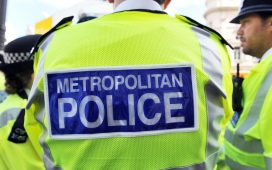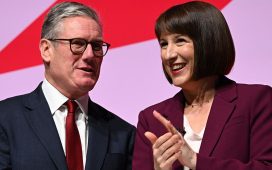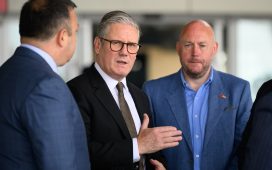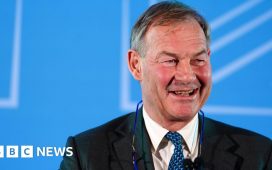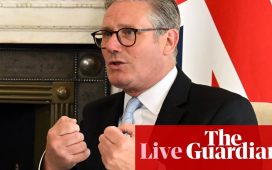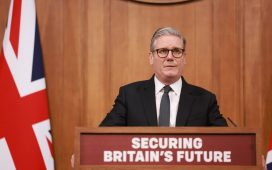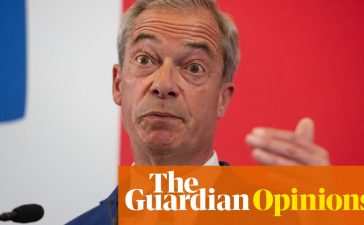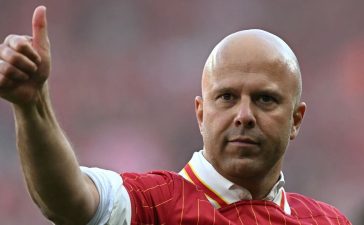Vallance’s diary provides Covid inquiry with multiple examples of Boris Johnson struggling to understand scientific advice
O’Connor asks about Boris Johnson’s understanding of scientific concepts. He shows the inquiry a series of extracts from Vallance’s diary which provide evidence of this.
This extract, from May 2020, describes Johnson as being “clearly bamboozled” by modelling on schools.

Here is another extract from May 2020 describing Johnson as being “confused” about different types of tests.

In this extract, from June 2020, Vallance says it is “awful” watching Johnson trying to understand statistics and that he finds the difference between absolute and relative risk “almost impossible to understand”.

In this extract, from July 2020, Vallance says Johnson did not understand the concept of doubling times.

And this one, from September 2020, says it is difficult getting Johnson to understand graphs – even when he has seen them before.

Key events
Vallance admits he was uncomfortable with claim government was ‘following the science’
The hearing has resumed. Andrew O’Connor, counsel for the inquiry, asks about the repeated government claims that it was “following the science”.
Vallance says at first he welcomed this because it meant ministers were listening to the scientists. But the phrase implied that scientists all agreed, which was not the case, he says. And it misunderstood what science is, he says.
Science, by its definition, is a moving body of knowledge that tries to overturn things by testing the whole time.
He says ministers need to weigh up different types of evidence. He says those are “impossible judgement calls which the science can’t make and shouldn’t make”.
Scientists found it hard to get clarity on how many Covid cases it would take to overwhelm NHS, inquiry hears
Here are some more lines from what Sir Patrick Vallance said to the Covid inquiry before the break.
In a sense, there were three broad possibilities. One: that the disease could be contained and eliminated.
The second: that the disease would run wild and not be controlled at all and people would make no effort to do anything. And the third was to try and control it in some way to minimise the impact.
And we didn’t know at that stage whether it was fully containable or not, but once it breaks out – and by the way, the breakout of containment domestically is dependent on the infrastructure you have, so the test [and] trace mostly – but once it breaks out, then my understanding from the beginning was the government did not want to do anything other than it didn’t want to let it run riot.
It didn’t think it could get to zero Covid, and therefore it was to control it and suppress the numbers in reference to the NHS being overwhelmed.
That was the closest we got to understanding the aims, coupled with a desire from the government not to impose overburdence and restrictions on liberty.
-
He said in his witness statement that no minister gave an estimate for what might be an acceptable number of deaths or infections “other than by reference to avoiding the NHS being overwhelmed”, the inquiry heard.
What we did know was that the NHS runs at pretty much 100% capacity, which is quite unlike most other countries. So we knew that the NHS capacity was likely to be very full anyway.
And trying to get precise numbers on ICU beds and occupancy of other types of high dependency beds was pretty difficult during February and I think it culminated in a meeting, which I think I asked to be set up the first day of March, with the NHS modellers to try and see if we can resolve this logjam.
The inquiry is now having a 15 minute break.
Chris Whitty was a ‘delayer’ when it came to implementing lockdown-type measures at start of Covid crisis, inquiry hears
O’Connor then asked Vallance about Prof Sir Chris Whitty, the chief medical officer, and he put it to Vallance that Whitty was more keen than he was to delay the introducing of lockdown-type measures.
This extract says in January 2020 Whitty thought Covid could be contained.

This extract says in February 2020 Whitty was “worried about pulling trigger too soon”.

And in this extract, from February 2021, Vallance says Whitty was “a delayer”.

Asked about Whitty’s stance, Vallance says it is important to remember that, as chief medical officer, Whitty was very aware of the health downsides of a lockdown, for example, from people not getting treatment for other conditions.
Vallance accepts science advisers were ‘wrong’ about when to push for lockdown-type measures at start of pandemic
Back at the Covid inquiry, Andrew O’Connor, counsel for the inquiry, is asking Vallance about the period in February and early March 2020, when the government was working out how to respond to Covid.
O’Connor shows an extract from the witness statement from Ben Warner, a No 10 aide. Warner said the government should have developed plans for a lockdown earlier.

Vallance says the government was not in a position to implement some of the NPIs (non-pharmaceutical interventions – lockdowns, social distancing, masks etc).
Q: Should Sage have been pushing for these measures earlier?
Vallance says the scientists thought these measures would be necessary. But he accepts they were wrong about timing.
Where we were wrong [was] our belief that we understood when to do that.
He says the data coming in on 14 and 15 March showed that Covid was much more advanced than they thought. The NPIs were needed urgently, he says.
He says there had been a data problem.
Here are tweets from journalists on the highlights from the Sunak speech and Q&A.
From ITV’s Robert Peston
The Chancellor will DEFINITELY cut personal income taxes on Wednesday, income tax or national insurance. If he doesn’t the PM will look incredibly foolish for saying this morning, repeatedly, that the moment has come to start cutting taxes, because he knows most voters don’t see the extension of capital allowances for business (though important and expensive) as tax cuts that matter to them. And Rishi Sunak is not a PM who creates expectations if he knows those expectations will be disappointed.
The Chancellor will DEFINITELY cut personal income taxes on Wednesday, income tax or national insurance. If he doesn’t the PM will look incredibly foolish for saying this morning, repeatedly, that the moment has come to start cutting taxes, because he knows most voters don’t see… pic.twitter.com/v4pzDInPs4
— Robert Peston (@Peston) November 20, 2023
From Robert Colvile, a Sunday Times columnist (and head of the Centre for Policy Studies, a Tory thinktank)
Sunak’s speech summarised: because I’ve made you eat your vegetables, I can now give you sweeties. In a judicious and responsible fashion. And Labour would snatch them away again.
— Robert Colvile (@rcolvile) November 20, 2023
From the BBC’s Iain Watson
Rishi Sunak is talking up tax cuts ahead of the autumn statement- he stresses ‘we cant do everything at once’ but ‘we can turn our attention to cutting taxes’ and because inflation has halved, ‘we can begin the next phase and cut tax’
— iain watson (@iainjwatson) November 20, 2023
From my colleague Ben Quinn
Subak is talking up his experience & Jeremy Hunt’s in businesses
“Our political opponents have got no experience whatsoever about running a business”
Cue fresh scrutiny of both men’s records (eg Hunt’s ‘HotCourses’)
— Ben Quinn (@BenQuinn75) November 20, 2023
But he tells us he’s “not a market fundamentalist”
When crisis hit the state has to step in— Ben Quinn (@BenQuinn75) November 20, 2023
This feels a prototype election manifesto, with a lot of likely attack lines that’ll come in a campaign
.. differentiating from Labour on a range of fronts “they will allow unions to bring the country to a standstill with just a third of members support”
— Ben Quinn (@BenQuinn75) November 20, 2023
Sunak seems up for reopening confrontations with Tory low tax ultras like Liz Truss
Says he was willing to resign from govt and lose a leadership election because it’s not possible “to borrow that amount of money” and for it not to have an impact
— Ben Quinn (@BenQuinn75) November 20, 2023
Q: On tax, wouldn’t it make more sense to just lower thresholds – instead of taking with one hand, and giving with the other (by reducing the headline rate).
Sunak says he has taken difficult decisions on tax.
Now, because he has halved inflation, and because the economy has outperformed, he is in a position to look at cutting taxes.
He says, when he became PM, everyone was forecasting a recession for this year.
He says, as he explained in his speech, the government will address tax cuts “seriously and responsibly”. The government will be disciplined, he says. And it will focus on supply side measures.
That is the end of Sunak’s Q&A.
Sunak says the number of small boat crossings have fallen by a third this year.
No one thought that was “remotely possible” when he made the pledge to stop the small boats, he claims.
But he says he is determined to finish the job.
He says he will not let a foreign court stop the UK sending planes to Rwanda.
Sunak says voters will face ‘clear contrast’ at election because Labour’s £28bn borrowing plan means it couldn’t cut taxes
Rishi Sunak has finished his speech, and is now taking questions.
He says Labour would put up borrowing by £28bn a year. That means it would not be able to cut taxes, he says.
He says there will be a “clear contrast” at the election.

